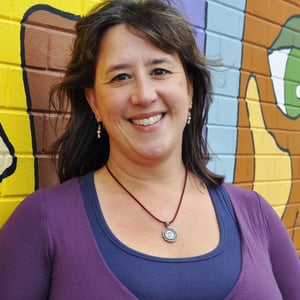 Collective Impact
Collective Impact
The Collective Impact framework contains five core conditions including the development of a common agenda; using shared measurement to understand progress; building on mutually reinforcing activities; engaging in continuous communications and providing a backbone to move the work forward.
The Collective Impact idea provides a useful framework for community change and is situated within the broad frame of collaborative efforts focused on systems and policy change.
Collective impact Workshops
Monday, September 30 | Building Your Planning Canvas
Since 2011, Collective Impact has grown into a world-wide field of practice. Skilled changemakers need to know what situations ARE and ARE NOT well-suited to Collective Impact. Equally important is the ability to assess whether there is adequate readiness to launch a Collective Impact initiative and how it can be cultivated. In this skills session we will discern the right situations and critical success factors needed to launch, and sustain, a successful Collective Impact effort.
Session goals:
- Determine whether Collective Impact is the right approach for what you are hoping to achieve
- Assess and cultivate the readiness for your CI initiative to thrive
- Explore common “stumbles” that can limit the effectiveness of your CI Initiative
- Discover factors common to successful Collective Impact Initiatives
Tuesday, October 1 | Innovative Stories and Case Studies
What does it take to create a Collective Impact initiative that acts as a catalyst and container for a grassroots movement for change? Discover how Collective Impact initiatives can create shared innovation spaces that generate change that no single sector or group could have achieved alone. Explore the opportunities and challenges of learning to work differently together.
Session goals:
- Be inspired by stories that profile the highs and lows of Collective Impact in action
- Discover the opportunities that CI creates to work differently; the challenges this can generate; and, what can be done to mitigate these risks
- Learn how the work of CI evolves across 5 phases and determine what you’ll need to focus on next
- Share lessons and resources from your own work in Collective Impact work
Wednesday, October 2 | Methods to Put Theory Into Practice
Explore – and apply – useful tools and frameworks designed to engage diverse perspectives in thinking together that can be used to help translate the theory of Collective Impact into action. Discover the essential role that data, dialogue and shared learning play in building the necessary trust and mutual understanding needed for your Collective Impact effort to flourish.
Session goals:
- Consider the importance of trust and discover tools and practices to nurture and sustain it
- Discover the importance of embracing a systems lens and learn simple tools to foster this view
- Learn about and share resources to continue to build your CI Implementation Toolkit
Meet sylvia, your festival faculty member
 Sylvia Cheuy
Sylvia Cheuy
Consulting Director, Collective Impact
Tamarack Learning Centre
Sylvia is a Consulting Director of the Tamarack Institute’s Collective Impact Practice Area and also supports Tamarack’s Community Engagement Practice Area. She is passionate about community change and what becomes possible when residents and various sector leaders share an aspirational vision for their future. Sylvia believes that when the assets of residents and community are recognized and connected they become powerful drivers of community change. Sylvia is an internationally recognized community-builder and trainer. Over the past five years, much of Sylvia’s work has focused on building awareness and capacity in the areas of Collective Impact and Community Engagement throughout North America.
Prior to joining Tamarack, Sylvia was the founding Executive Director to Headwaters Communities in Action (HCIA), a grassroots citizen initiative that fosters collaborative leadership and action in support of a long-term vision of well-being for Ontario's Headwaters region. This experience gives Sylvia practical knowledge and first-hand experience of what it takes to engage and mobilize positive community change. Her work with HCIA was published as a chapter entitled, A Citizen-Led Approach to Enhancing Community Well-Being in the newly published Handbook of Community Well-Being Research.
Sylvia completed her Masters Diploma in Social Innovation at the University of Waterloo in 2013 where she explored opportunities to create change within regional food systems. An active volunteer in her community, Sylvia serves as a member of HCIA’s Leadership Council. She also served for nine years on the Board of Community Living Dufferin where she was instrumental in securing $2.8 million in funding for CLD's shared home with Theatre Orangeville, the community's professional theatre company. Sylvia lives in Caledon, Ontario with her husband John Graham and their three children: Gabriella, Garrett and Sean.